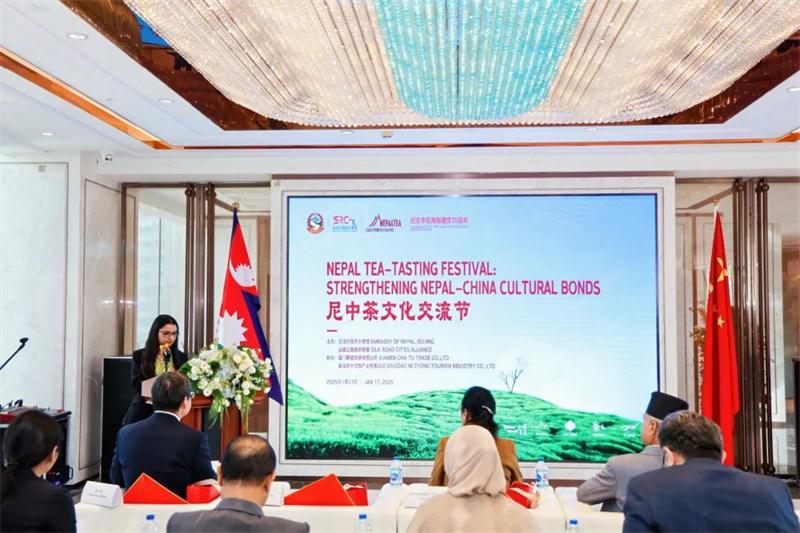
The Nepal Tea-Tasting Festival: Strengthening Nepal-China Cultural Bonds, takes place in Beijing on Jan 17, 2025. [Photo provided to chinadaily.com.cn]
The Nepal Tea-Tasting Festival: Strengthening Nepal-China Cultural Bonds, co-hosted by the Nepali Embassy in China and the Silk Road Cities Alliance, was held on Friday in Beijing.
Dr Krishna Prasad Oli, Nepalese ambassador to China; Song Ronghua, executive chairman of the Silk Road Cities Alliance; Yuan Mindao, vice president of the Chinese People's Association for Friendship with Foreign Countries; and Xu Xiaohu, vice president of China Chamber of Commerce of I/E Foodstuffs, Native Produce, and Animal By-products, attended the event along with dozens of Chinese officials and diplomats from various countries.
In his speech, Oli said that tea is a shared element in both Nepalese and Chinese cultures, with tea drinking becoming an important pastime in Nepal. Nepal's fertile soil, pure mountain air and rich biodiversity make it a producer of high-quality teas. After 160 years of development, Nepal has become the world's 16th largest tea producer, exporting tea to other Asian countries, as well as to Europe and America.
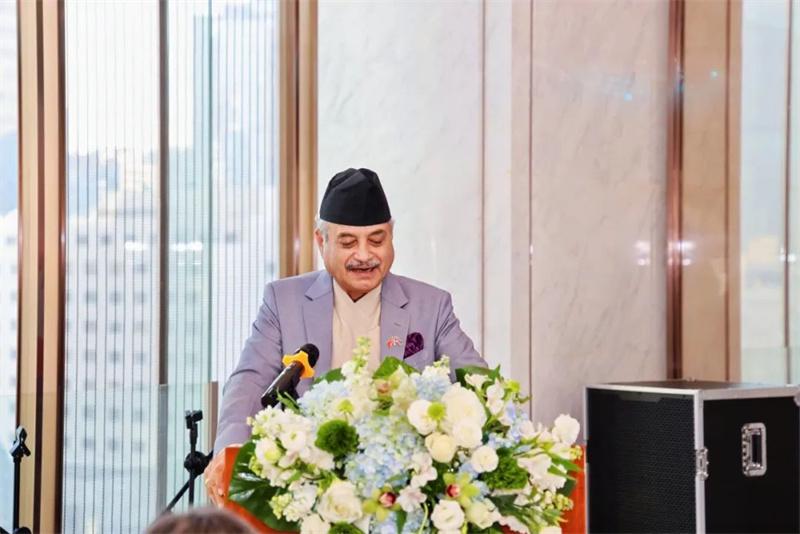
Dr Krishna Prasad Oli, Nepalese ambassador to China, speaks at the event in Beijing on Jan 17, 2025. [Photo provided to chinadaily.com.cn]
Oli added that the festival, the first public event celebrating the 70th anniversary of the establishment of diplomatic ties between China and Nepal, aimed to promote cultural connections between the two close neighbors and trustworthy partners.
Chinese Ambassador to Nepal Chen Song said in a video speech that tea originated in China and has become an essential medium for cultural exchange.
He said that the last 70 years have seen China and Nepal respect each other's independence, sovereignty and territorial integrity, respect and accommodate each other's concerns and core interests, and sincerely support each other's chosen development paths, setting an example of peaceful coexistence between countries of different sizes and different social systems. He also expressed the hope of advancing China-Nepal relations in the new era to bring benefits to people in both countries.
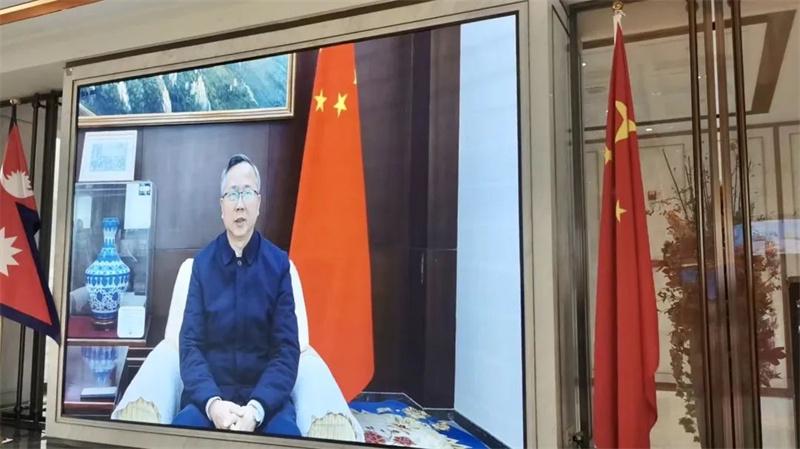
Chinese Ambassador to Nepal Chen Song gives a video speech at the event in Beijing on Jan 17, 2025. [Photo provided to chinadaily.com.cn]
Yuan said that tea culture embodies the philosophy of "harmony in diversity" and the spirit of seeking common ground while reserving differences, which is in line with the principles of economic globalization and multicultural coexistence. Yuan added his association will stay committed to implementing the critical consensus reached by the leaders of the two countries and expanding the cooperation between the two sides in the fields of economy, trade, culture and tourism to help push the China-Nepal friendship across the Himalayas to a new level.
According to Xu, his chamber, China's largest trade organization for foodstuffs and agricultural products, will continue to act as a bridge to promote the shared prosperity and development between the two sides in the fields of tea and other commodities.
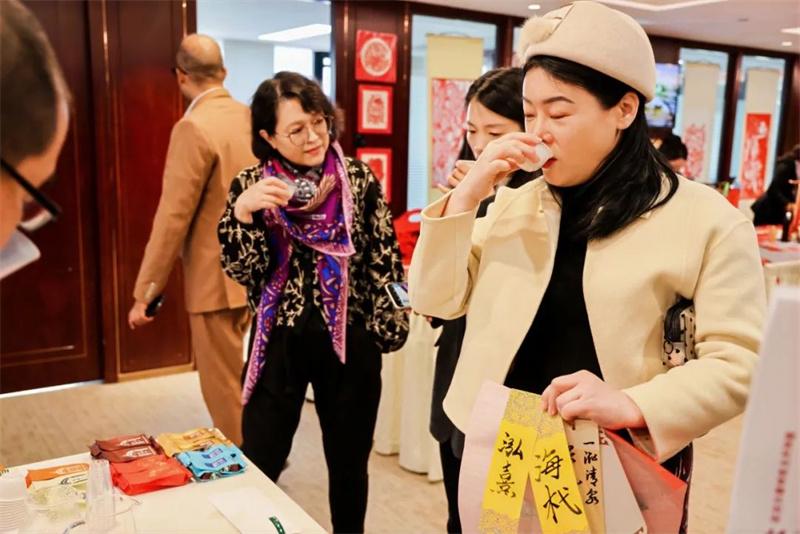
Guests taste Nepalese tea at the event in Beijing on Jan 17, 2025. [Photo provided to chinadaily.com.cn]
Guests were treated to various Nepalese teas, such as black, white, green and milk tea, learning about the country's rich tea tradition and tea-making techniques. Participants were also invited to try their hand at Chinese calligraphy, paper-cutting and tea ceremony.
The event also unveiled several cooperation projects to mark the 70th anniversary of the establishment of diplomatic ties between China and Nepal, which include the Beijing-Kathmandu cultural tour, China-Nepal youth exchanges, a green development forum, and dragon boat races.
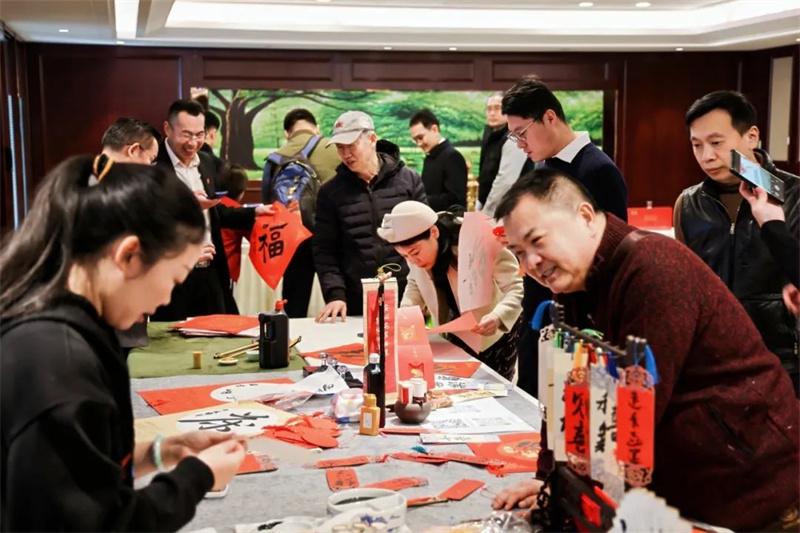
Guests try their hand at calligraphy at the event in Beijing on Jan 17, 2025. [Photo provided to chinadaily.com.cn]
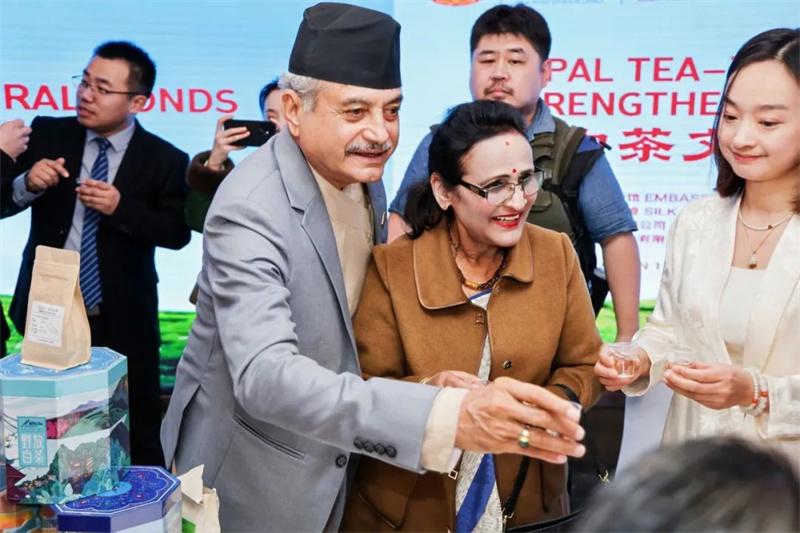
Nepalese Ambassador to China Krishna Prasad Oli and his wife greet guests at the event in Beijing on Jan 17, 2025. [Photo provided to chinadaily.com.cn]